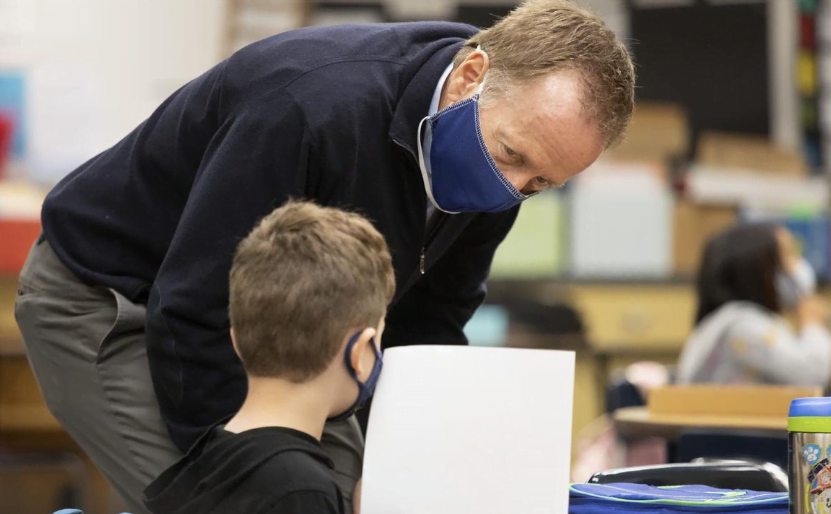The purpose of schooling is to provide students with the knowledge, skills, and values they need to become responsible and productive citizens. This includes not only academic knowledge, such as reading, writing, and mathematics, but also skills such as critical thinking, problem-solving, and communication. In addition, schooling is also intended to provide students with the opportunity to learn about different cultures, perspectives, and ways of life, and to develop the values and attitudes needed to live in a diverse and democratic society.
Academically, schooling is intended to provide students with the knowledge and skills they need to be successful in their future careers and in life. This includes not only the traditional “3 R’s” of reading, writing, and arithmetic, but also a wide range of subjects such as science, history, language, and the arts. In addition, schooling is intended to provide students with the opportunity to learn about different cultures, perspectives, and ways of life, and to develop the values and attitudes needed to live in a diverse and democratic society.
Schooling also serves as a socializing agent, helping students to develop the skills and attitudes they need to become responsible and productive citizens. This includes teaching students about the importance of civic engagement, how to be an active and informed member of the community, and how to work collaboratively with others.
The purpose of schooling is also to develop the whole person, not just the intellect but also the emotional and physical aspects of the person. This includes providing students with opportunities to participate in physical activity and the arts, which can help to develop creativity, self-expression, and self-esteem.
It’s worth noting that the purpose of schooling can vary depending on the context, culture and country. The curriculum, the teaching methods and the evaluation systems are different in each country. However, the general goal of schooling is to provide students with the knowledge, skills, and values they need to be successful in their future careers and in life.
The main purpose of the American school is to provide for the fullest possible development of each learner for living morally, creatively, and productively in a democratic society.
School Purposes Meaning
The purpose of schools has evolved over time and can vary depending on cultural, societal, and economic factors. In general, the purpose of schools is to provide students with the knowledge and skills needed to succeed in life, both academically and socially. This includes teaching academic subjects such as math, science, and English, as well as social and emotional skills such as communication, problem-solving, and collaboration. Additionally, schools serve as a place for students to develop their identities, explore their interests, and prepare for future careers.
What are the 4 Purposes of Education?
The four main purposes of education are academic, social, vocational, and personal. Academic purposes include teaching students knowledge and skills in academic subjects, such as math, science, and literature. Social purposes include helping students develop social skills, such as communication, teamwork, and conflict resolution. Vocational purposes include preparing students for future careers and providing them with vocational skills, such as computer programming, mechanics, or nursing. Personal purposes include helping students develop their personal identities, interests, and values.
What is the Purpose of School in Society?
The purpose of schools in society is multifaceted and can include providing equal access to education, preparing students for citizenship, and promoting social mobility. Schools can also serve as community hubs, providing access to resources and services beyond education. Additionally, schools can be a place for students to engage in extracurricular activities, develop social networks, and access health services.
What is the Purpose of Schooling in the United States?
The purpose of schooling in the United States is to provide all students with a free and appropriate education that prepares them for college and career readiness. The No Child Left Behind Act and the Every Student Succeeds Act mandate that schools in the United States focus on academic achievement, particularly in reading and math. Additionally, schools are expected to provide social and emotional support to students, particularly those from disadvantaged backgrounds.
Purpose of Schooling in the 21st Century
In the 21st century, the purpose of schooling has expanded to include preparing students for a rapidly changing and interconnected world. This includes providing students with 21st-century skills such as digital literacy, critical thinking, and global awareness. Additionally, schools are expected to prepare students for careers in emerging fields, such as artificial intelligence, cybersecurity, and renewable energy.
What is the Purpose of Public Education?
The purpose of public education is to provide all students, regardless of background or economic status, with access to a high-quality education that prepares them for success in life. Public education is funded by taxpayer dollars and is intended to be free and accessible to all. Public schools are held accountable for academic achievement and are expected to provide a safe and supportive learning environment for all students.
In conclusion, the purpose of schooling is to provide students with the knowledge, skills, and values they need to become responsible and productive citizens. This includes academic knowledge, skills such as critical thinking, problem-solving, and communication, and the opportunity to learn about different cultures, perspectives, and ways of life, and to develop the values and attitudes needed to live in a diverse and democratic society. The purpose of schooling also includes developing the whole person, not just the intellect but also the emotional and physical aspects of the person. It’s worth noting that the purpose of schooling can vary depending on the context, culture and country.

